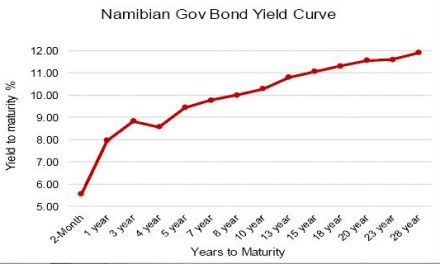
Property delays are arguably one of the biggest inflation drivers
The link between inflation and poor service delivery surfaced this week when two unrelated events both pointed to the economic damage arising from an inefficient bureaucracy.
Speaking to long-standing employees representing several municipal departments at the City of Windhoek, a universal complaint was that they had to train new, young, inexperienced staff members all the time. Although it was not stated as such, I gathered from this remark, the City has now cottoned on to the pervasive government practice of placing more emphasis on being an employment agency than being a service provider.
In another high-level meeting, one of the organisers pointed out to me that the delays experienced with the approval of building plans at the City of Windhoek, can add anything between 20% and 40% to the initial planned costs for medium and large construction projects. “With sizeable developments, it often takes two years to get through all the regulatory hurdles before construction can begin” a sour-faced former property developer said.
“Depending on where in Windhoek, this unforeseen escalation in costs can be as high as 10% to 15% per year. If the project is stalled for 2 years or more, the first bill of quantities can be tossed out of the window” I was told.
And then in no uncertain terms, my correspondent said “Now isn’t that the real cause for the exhorbitant property inflation we have seen since 2010.”
There is abolutely no shortage of land in Windhoek. All the talk in the past of the Windhoek basin filling up, is utter nonsense. Anybody who wish to disagree has not recently driven around the outer precincts of the city. There is more undeveloped land between the Auas Mountains and the Khomas Hochland than there is in that part that is now urban, which took around 150 years to develop.
There is a massive shortage of serviced land in Windhoek. Primary services is a function of the City of Windhoek, and when they dodge this responsibility or fall behind because of their tendency to appoint wet-behind-the-ears youngsters fresh from university, or sometimes not from university at all, then the land delivery process fails. In the meantime, demand remains elevated and the prices go ballistic.
If the whole Oshona Village development near Okahandja can be done in less than a year where over 200 serviced erven are becoming available, what stops the City from servicing a few thousand erven per year.
The economic basics are simple. The more erven surveyed, demarcated and serviced, the more can be sold and the quicker the City can improve its shaky financial foundation.
Meanwhile, the City is more concerned with regulating informal settlements and bringing services to residents who generally do not pay for utilities, than making land available that will have an impact on the mainstream economy.
The government first brought us the mentality of having to be an employment agency instead of focussing on quality of service delivery. We all know where this has ended up. Today there are simply too many ministeries and departments that have de facto ceased to operate or exercise their mandate because the people working their do not know their elbows from their hotspots.
This is usually only resolved when a department gets into such serious trouble, that the discontent becomes palbable at grassroots level. Then CEOs must sign performance agreements, but they still have to work with the sediment left there by their predecessors.
For all intents and purposed, it seems a drastic introspection has begun during 2016 when economic reality first showed us it is no good to try and pay everybody a salary when productivity is lost.
I believe we need to go back to economic fundamentals and concern ourselves more with the supply side of services than with the outcomes of poverty eradication. When we focus on service delivery, – efficiency and productivity, – the poverty will disappear. As long as we get our economic duck skew, the outcomes will also be skewed and we will continue to be extremenly disappointed when we look at the meagre results in poverty eradication and compare these to the enormous costs we incurred to create a few thousand temporary jobs.
Prosperity does not start with slicing up the cake into ever smaller pieces. That only creates more poverty. The fight against poverty starts with tried and tested economic fundamentals, efficiency, productivity, profitability.











































